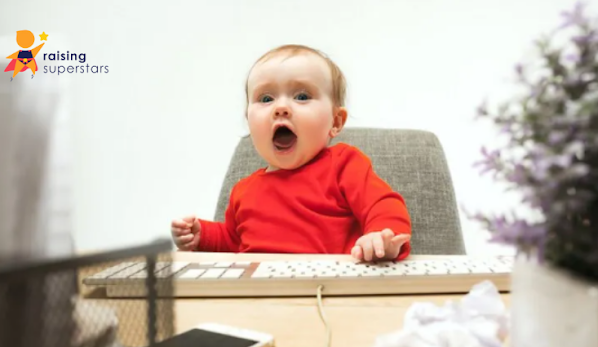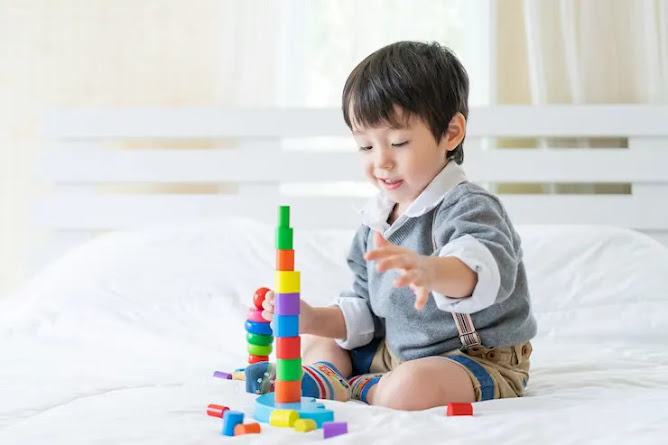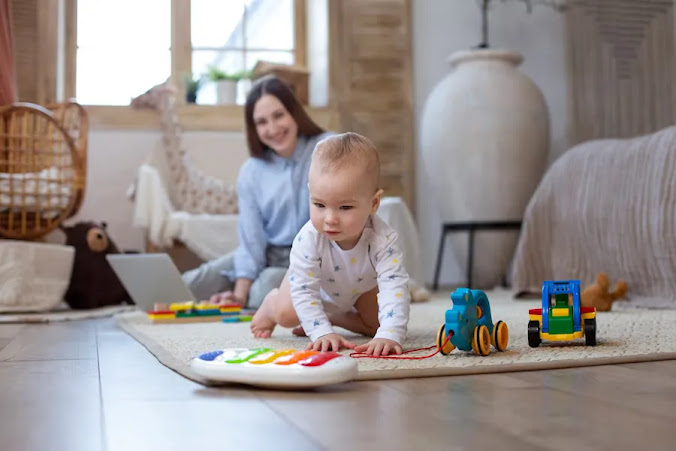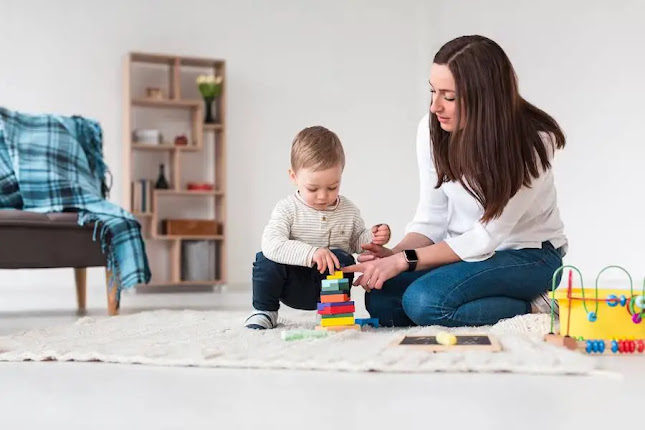A Week-by-Week Guide to Your Baby's First-Year Milestones
Although make sure that you keep your child’s paediatrician in the loop and notify them about your observations.
Week 1: Recognizes voice.
Week 2: Focus on objects 4-12 inches away.
Week 3: Starts snuggling.
Week 4: Makes sounds such as “coo” and “aah”
Week 5: Smoother and more purposeful movements.
Week 6: First genuine smile.
Week 7: Starts understanding senses, and becomes partial to color.
Week 8: Stronger neck muscles.
Week 9: Fascination with sounds.
Week 10: Recognises familiar faces in a group.
Week 11: Stays awake for longer periods of time.
Week 12: Fascination with their hands.
Week 13: Laughs, chuckles and babbles.
Week 14: Eye and hand skills.
Week 15: Starts to roll over.
Week 16: Tummy time to exercise neck, chest rib cage and arm muscles.
Week 17: Razzing noises and blowing raspberries. Making eye contact.
Week 18: Sharp eyesight and improved depth perception.
Week 19: Puts consonants together with vowels.
Week 20: Recognises their reflection in the mirror.
Week 21: Crawls around on the floor and turns direction.
Week 22: Puts everything into mouth.
Week 23: Muscle coordination from the head down. Upper body strength.
Week 24: Recognises names and words. Improvised receptive language.
Week 25: Developes gross motor skills.
Week 26: Becomes selective with who they respond to.
Week 27: Drops things on the floor.
Week 28: Starts eating solid foods.
Week 29: Improved socialising and communication skills. Peek-a-boo and other games.
Week 30: Masters muscular coordination by crawling.
Week 31: Developed pincer grip and ability to hold and pick up things.
Week 32: Stands and leans against the furniture.
Week 33: Emotional development and ability to control their environment.
Week 34: May situate themselves in a standing position if not walk properly.
Week 35: Strings syllables and vowels together. Pronounces words such as “ball” and “bottle.”
Week 36: Creates experiences from memory.
Week 37: Begin baby-proofing things as your baby will try and reach for objects. Improvised curiosity and mobility.
Week 38: Leaves a trail behind them by creating a mess wherever they go.
Week 39: Starts spending a lot of waking time on gumming, banging small objects and turning over.
Week 40: Your baby has intently started to watch you and observe you. They might also imitate some of your actions.
Week 41: Increased interest in stories as they try to build their self-esteem.
Week 42: Discovered newer and faster ways to move and is testing his muscles by constantly moving.
Week 43: Your baby now understands that objects exist even if they cannot see them. Play a game of hide-and-seek to help them master their skills.
Week 44: Increased curiosity about the world around them.
Week 45: Prefers feeding themselves. Let them grab the spoon as it helps master fine motor skills.
Week 46: New developed opinions and preferences for their social circle as your baby gets used to their newfound independence. They will slowly try to resist your authority.
Week 47: Give your baby directions and guidelines to help keep them safe.
Week 48: Trying to develop the ground for walking. Your baby is now attempting to walk and you can help them learn this skill by clearing furniture and making space for them.
It's okay to feel overwhelmed as you keep track of all the developmental milestones your baby is achieving and the ones they are yet to achieve. A baby’s first year is a memorable time for parents as they get to witness their firsts.




Comments
Post a Comment